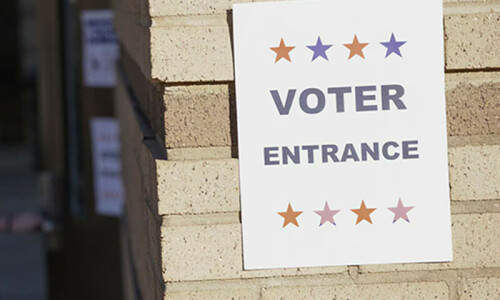WASHINGTON, Dec 23: US Secretary of State Colin Powell has said he does not believe President Pervez Musharraf was involved at any stage with the nuclear proliferation done allegedly by Dr A.Q. Khan.
Mr Powell defended President Musharraf in an interview to the Christian Science Monitor published on Thursday. Asked if he thought Gen Musharraf was complicit at any time with the proliferation, Mr Powell said: "I have no reason to believe that. I have no evidence to that."
When the interviewer suggested that the proliferation network could not have functioned without being noticed by the ruler of the country, Mr Powell said he knew how things worked in Pakistan and he still believed President Musharraf was not involved. "I'm very familiar with the way it works, and I have spoken to President Musharraf about this directly, one-on-one. And he said that he did not," said Mr Powell.
According to Mr Powell, Gen Musharraf told him that "what A.Q. Khan was doing was so compartmented" that it allowed him to conduct these activities without informing others outside his circle. "He, General Musharraf, was outside that circle. That's what he has said to me, and I have no evidence to prove or disprove his statement."
But the outgoing Secretary of State minced no words when asked to evaluate Dr Khan's alleged involvement with the network and the danger it posed to the world. "He was a very serious proliferator. He was very dangerous to the world in that he was doing this not for ideological purposes," said Mr Powell.
"The total range of his motivation I'm not sure I understand, but some of it was for financing. I mean, he was making money on this deal. He was living very well. And he was a serial proliferator for many years," he added.
He said when the United States came to know about the activities of this network, it took several measures to cope with the problem. Besides wanting to deal with it "both politically and diplomatically," the US administration also made "other forms of contingency planning to deal with A.Q. Khan," he said.
"And then, as his activities became more public over the last year and a half, it was not easy for him to hide. It was easier for us to approach the Pakistanis and say to them, look, this is what we know."
Mr Powell said that in late January or February, he telephoned President Musharraf and told him: "We know so much about this that we're going to go public with it, and within a few weeks, okay? And you need to deal with this before you have to deal with it publicly.
"And that's what President Musharraf did. The next thing we knew, A.Q. Khan had been put in custody." Talking about Pakistan's efforts to catch Osama bin Laden and other Al Qaeda leaders, Mr Powell said he was confident the Pakistanis would apprehend Osama if they knew where he was.
In reply to a question, he said President Musharraf had managed Pakistan's transition from being a supporter of the Taliban regime to a strong US ally in the war against terror 'quite well' and was capable of dealing with any situation.
President Musharraf, he said, had got to 'fix' the Madressah system and 'he's working on it'. "He had to fix the economy or else people would have no confidence in him as a leader, whether he had a uniform on or not. And he's working on that. He's taking care of a good part of his debt relief, no problems."
Mr Powell said that when he telephoned Gen Musharraf after 9/11, he had seven points on his agenda and had expected the president to say "six of the seven were okay. But instead, he said, we'll do it all, all seven. And it was a major strategic decision on his part."
"I've watched this gentleman very closely now for these years and I perhaps speak to him more than any other international figure, like 90 phone calls, and I don't know how many meetings. So we talk all the time," he said.
Responding to a question, Mr Powell said since the US had good relations with both Pakistan and India, it succeeded in evading a war between the two nuclear nations two years ago. China, he said, had also worked with the US to defuse the situation and prevent a possible nuclear conflict in South Asia.











































Dear visitor, the comments section is undergoing an overhaul and will return soon.